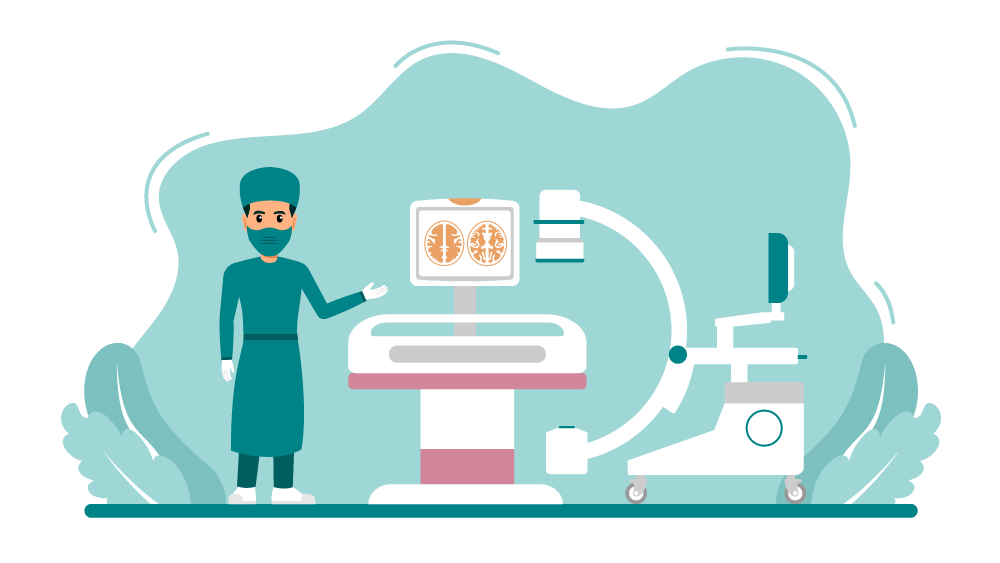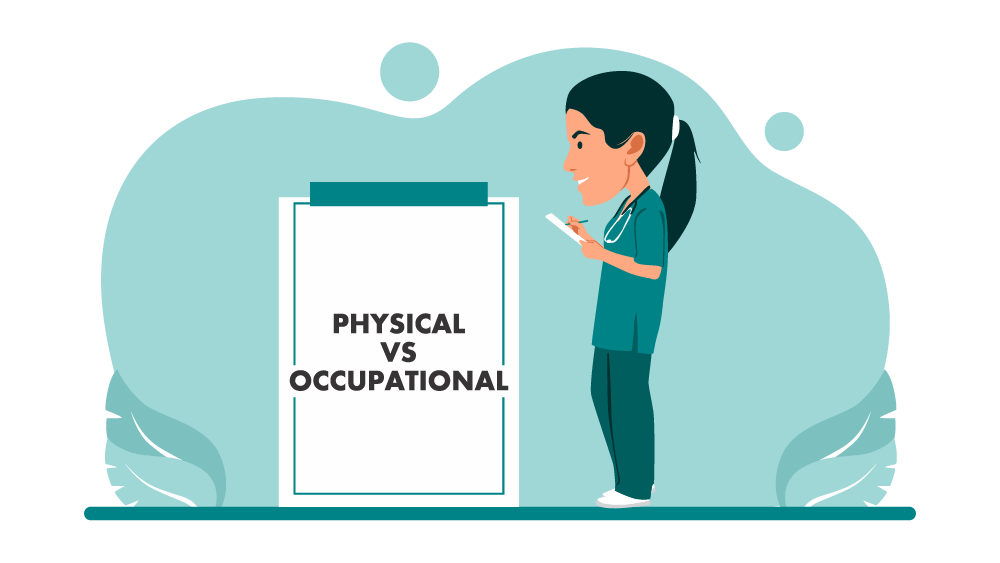If you want to become a dental hygienist, it’s a good idea to understand what you will be doing. This type of career will have you working directly with other dental professionals, including dentists. Knowing the requirements and responsibilities of this position will help you make a wise decision.
Learning how to become a dental hygienist will help you know this career path better. If you decide to take this path, you will perform specific duties. Let’s look at the common job duties of a dental hygienist and how to become one.

Job Duties of a Dental Hygienist
As a dental hygienist, you will be a healthcare professional. Your specialty will be in oral health and you will work under the supervision of a dentist. This type of career will have a strong focus on preventative oral healthcare. You will help to clean the teeth of patients, and so much more.
As a dental hygienist, your most common job duties will include:
- Cleaning teeth with dental instruments
- Inspecting the gums of patients and looking for periodontal disease
- Inspecting the lymph nodes of the patients for swelling and signs of potential oral cancer
- Maintain records and medical histories for patients
- Performing X-rays
- Taking record of symptoms related to oral disease for the dentist
- Organizing, sterilizing, and cleaning dental equipment
- Helping to inform patients of preventative dental care
- Using dental decay-preventing agents on patients
- Maintaining and developing dental hygiene programs
- Working with dentists and dental assistants on a daily basis
These job duties are the most common for the dental hygienist in a dental office. If you go into this career, you will be helping patients with their oral healthcare.
How to Become a Dental Hygienist in 4 Steps
Step #1 – Complete High School
You will need to complete high school before you can move forward on this career path. If you want to become a dental hygienist, you will need to get a GED or a high school diploma. This is the first step in the process.
During high school, it’s best to take courses in chemistry, biology, and math. This can help prepare you for the education you will need after high school.
Step #2 – Earn an Associate’s Degree
You will need to enter into an associate’s degree program if you want to become a dental hygienist. The program should be approved by the Commission on Dental Accreditation. Many colleges and universities offer this type of program, but you may need some prerequisites before you enter into the program.
You can complete your associate’s degree at a community college, dental school, or vocational school, as well. Usually, you will spend two to three years to complete this type of program. During your education, you will take courses in radiography, medical ethics, anatomy, periodontics, nutrition, pathology, and more.
It will also be necessary to learn in a laboratory setting and a clinical setting. This degree will give you everything you need to advance to the next step of this career path.
Step #3 – Gain Your License
Each state has different requirements for receiving a dental hygienist license. The most common requirements will include:
- Receiving a diploma from a CDA-approved institution
- Scoring high enough on the National Board Dental Hygiene Examination
- Complete the state-level or regional clinical board examination
After you have completed these three steps, you will become a licensed Registered Dental Hygienist. This gives you everything you need to start applying for jobs within this career.
Step #4 – Complete Advanced Training
If you want to advance your career as a dental hygienist, you will likely need to complete additional training. This may include getting a bachelor’s degree, or even a Master’s degree.
With an advanced degree, you can gain opportunities to conduct research or even teach. It may also be required to get an advanced degree if you want to work at a school clinic or in public health.
Continuing education courses are also necessary to keep your license. This type of career requires a specific number of credits every so often to keep your education current within your field.
Dental Hygienist vs. Dental Assistant
You may be considering a career in dental care and have the option to become a dental hygienist or a dental assistant. These are both different, but similar types of careers. As a dental assistant or a dental hygienist, you will work under the supervision of a dentist.
If you become a dental assistant, your job will be to prepare the dental office and the equipment for the hygienists and the dentist. This includes anything needed for a procedure. You may also assist by handing dental tools to the dentist and disinfecting instruments.
Those becoming dental hygienists will work directly with patients. They may perform more advanced dental procedures including removing soft and hard deposits from the teeth.
Frequently Asked Questions About Becoming a Dental Hygienist
How much can I earn as a dental hygienist?
This is a rather well-paying career. According to Indeed.com, you can be paid an average per hour rate of about $39.66. Your actual pay will be determined by your location, your experience, and your training.
As a dental hygienist, if you have over 10 years of experience, you’ll likely earn closer to $47 per hour. Some top employers will pay more than $50 per hour for dental hygienists. The top-paying locations include New York City, Portland, Austin, and Chicago.
What type of benefits do dental hygienists enjoy?
As an employee, you will likely get a benefits package. This package may include a 401(k) with employer matching and health insurance. It’s also common to earn paid time off and get other types of insurance, such as dental, vision, and life. Many dental hygienists will be given a flexible schedule, and you might also gain access to professional development assistance.
How often do dental hygienists get paid?
How often you get paid will be determined by your employer. It’s common for dental hygienists to get paid weekly or even biweekly. In some rare cases, you may get paid bi-monthly.
What type of work environment will a dental hygienist enjoy?
It’s common for dental hygienists to work in a private dental office. You will likely spend most of the day on your feet. It’s also common to work in odd positions throughout the day, as you perform oral procedures.
What type of hours do dental hygienists work?
While this can be a full-time career with a 40-hour workweek, it’s more common for hygienists to work 32 hours per week. In some cases, you may work more hours by working in more than one dental office. Most employers will offer flexible scheduling for this career.
Many dental hygienists work three to four days a week. Shifts are often eight hours per day. When working in a dental clinic, it’s common to work with just one patient per hour.
Can I work to become a dental hygienist online?
Yes, you can work towards a dental hygienist degree online. This type of degree will include plenty of classroom study, which can all be done online. However, you will likely need to be in-person to complete the lab work and the clinical hours necessary.
How long will it take me to become a dental hygienist?
You can become a dental hygienist in as little as 2 years. The degree you get from a vocational school, community college, or dental school will likely take two years but may take longer, depending on how fast you work through the classes.
Is it necessary to become a dental assistant before becoming a dental hygienist?
No, it’s not necessary, but it can certainly be helpful. Many dental assistants go on to become dental hygienists. This experience can help you gain a better job as a dental hygienist. In some cases, you might get assistance with the cost of your degree, if you’re already a dental assistant.
Is the career of a dental hygienist in high demand?
Yes, this career is growing faster than the average of all other occupations. It’s expected to grow by about 11% over the next ten years.
Do I need a degree to work as a dental hygienist?
Yes, you will need at least an associate’s degree. If you want to advance your career, a bachelor’s or Master’s degree may be required.
About 43% of dental hygienists hold an associate’s degree. Another 22% have a bachelor’s degree with only 6% holding a Master’s degree.
When you’re ready to choose the right career for you, becoming a dental hygienist might be high on your list. This type of career is a very important one as you will help people with their oral care. Maybe you’re already a dental assistant and you’re ready to advance your career.
Learning how to become a dental hygienist can lead you to a rewarding and enjoyable career. This is a great way to enter the dental industry without needing to go to school longer and become a dentist. Plus, this career is a well-paying option for those seeking an associate’s degree.





